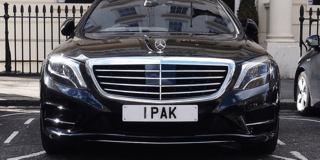Ask the Mechanic: How can I get private vehicle number plates?

Hello Paul, please talk about what I need to know about buying a private number plate, the legal requirements and how to go about the process.
Davis
Hello Davis, private or personalised number plates are issued jointly by Uganda Revenue Authority and Ministry of Works vehicle licensing and registration departments to individuals who apply for them. For one to get personalised number plates you need to pay Shs20m. When allocated a personalised number plate, it is tagged to your TIN (Tax Identification Number), so you can transfer these private number plates to another car you buy or import after notifying and securing authorisation from the above licensing and registration authorities to deregister the old vehicle and register your new vehicle.
Private or personalised number plates cannot be inherited or passed on to other persons. Should you die or cease to own a vehicle and legally transfer its ownership, the new owner should pay for registration of ordinary number plates. The Parliamentary regulations 1971 and 1998 that describe number plate categories states that the maximum number of characters is nine for both front and rear plates.
However, they can be less depending on one’s preference. The word Uganda must appear on the top middle section of the number plate. The front plates should be embossed in green with a reflective white background while the rear is embossed in green with a yellow background. The Parliamentary statute emphasises that private number plates are not transferrable.

CAN I USE DOT4 BRAKE FLUID INSTEAD OF DOT3?
Hello Paul, I drive a 2004 VW Touareg whose recommended brake fluid is DOT3. I visited a nearby Shell petrol station and found only DOT4 brake fluid. What is the difference between the two and can I use DOT4 instead of the recommended DOT3?
Mugisha
Hello Mugisha, you can use DOT4 brake fluid in your VW instead of DOT3, but not the other way round. DOT4 brake fluid performs better than DOT3 in harsher and hotter operating conditions and is usually recommended for newer, high-speed vehicles which are designed with ABS and Traction control. To understand the difference better, you need to appreciate that brake fluid to your car brakes is like blood in your body, and more. Brake fluid helps to build hydraulic braking pressure while it cools down your very hot brake system to avoid damage of seals and pistons, so that your brakes respond promptly.
Brakes work by turning kinetic energy into heat. It is like rubbing your hands together. The faster and closer you rub them, the hotter and harder it becomes to move them. That is the same way brakes work. There are other functions of brake fluid such as corrosion inhibiting. The brake friction disc rotors and brake pads become very hot during braking. This heat gets transferred by conduction to the brake fluid. When the brake fluid becomes too hot when it boils, it causes air pockets or vacuum to develop in the brake lines. This reduces braking performance or increases your braking distance.
Send email to: [email protected]




